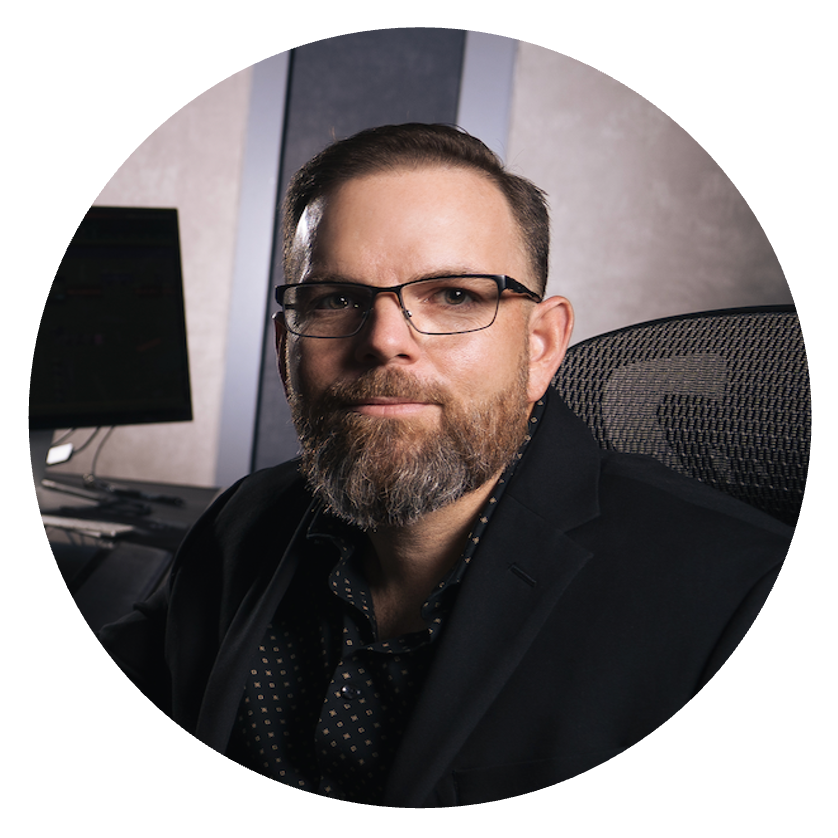Founder’s Five: Alan Forbes, F.I.R.S.T. Institute
October 18, 2024 Founder's FiveFounder’s Five is a continuing series from Tyton Partners that invites education company founders to shed light on…
Founder’s Five is a continuing series from Tyton Partners that invites education company founders to shed light on their own success and illuminate the landscape for other education entrepreneurs and investors by answering five basic questions.
Alan Forbes and Donney Smith founded F.I.R.S.T. Institute in 2004 in Orlando, Florida, with a mission to equip students with the technical knowledge and creative skills needed for successful careers in the digital media and entertainment industries. Today, F.I.R.S.T. Institute provides hands-on training in recording arts, digital media, graphic design, and photography at its state-of-the-art campus in Florida and online.
 What is your company’s origin story?
What is your company’s origin story?My co-founder Donney and I met over 20 years ago, working in the music industry. We initially ran a commercial recording and production studio that focused on recording audio, producing music, and dabbling in videography. Our passion for the industry and desire to share our knowledge led us to start teaching workshops on various software, which eventually blossomed into the F.I.R.S.T. Institute, which became a licensed institution in 2004. We were both in our early 20s, driven by a shared vision to create a space where students could immerse themselves in career-focused training from day one.
 How will the market be changed by your company’s success?
How will the market be changed by your company’s success?From the outset, we recognized the need for career-focused training programs that allow students to concentrate on their vocation without the distraction of general education classes. This approach enabled us to develop short-term programs that keep pace with the rapid evolution of technology in our fields of study. We ensure our graduates are well-prepared for the fast-changing industry by staying agile and up-to-date. Our success will continue to set a benchmark for educational institutions, demonstrating the effectiveness of specialized, technology-driven training.
 What do you know now that you wish you had known when you began?
What do you know now that you wish you had known when you began?Looking back, I wish I had understood the complexities of scaling a business and the challenges that come with it. One of the most significant hurdles is hiring the right team and adapting to the changing needs of the business as it grows. Hiring a dedicated HR manager when our company exceeded 50 associates was one of our best decisions. It helped solidify and maintain an excellent company culture.
Additionally, I wish I had known the long-term value of owning commercial real estate rather than leasing. While leasing made sense in the initial years, investing in property builds substantial value over time.
 What non-intuitive insight have you gained through this work?
What non-intuitive insight have you gained through this work?A non-intuitive insight we’ve gained is the immense value of building a debt-free company without start-up seed money. This necessity forced us to operate lean and mean, driving innovation and creativity in every aspect of our business.
 A non-intuitive insight we’ve gained is the immense value of building a debt-free company without start-up seed money. This necessity forced us to operate lean and mean, driving innovation and creativity in every aspect of our business.
A non-intuitive insight we’ve gained is the immense value of building a debt-free company without start-up seed money. This necessity forced us to operate lean and mean, driving innovation and creativity in every aspect of our business.
It required us to be hands-on, problem-solving, and agile, quickly pivoting when something wasn’t working. This approach has been a core part of our success and continues to guide our operations even after more than 20 years.
 What other education company besides your own do you wish you had started?
What other education company besides your own do you wish you had started?We admire any education company that has longevity in an ever-changing regulatory environment. Working in the education industry is incredibly rewarding—you’re genuinely shaping future generations. Given the continuous evolution of education, we respect all institutions that have managed to grow and adapt simultaneously. Their resilience and commitment to education are truly commendable.